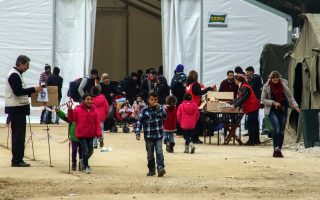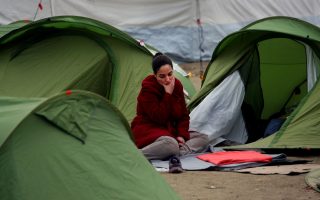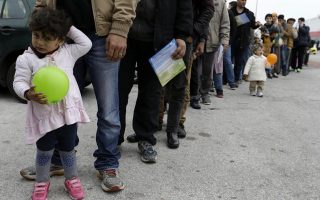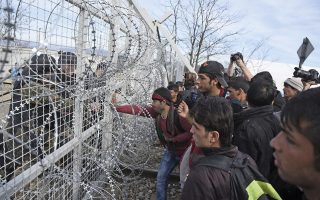Anguish on Greece-FYROM border as Skopje tightens refugee controls
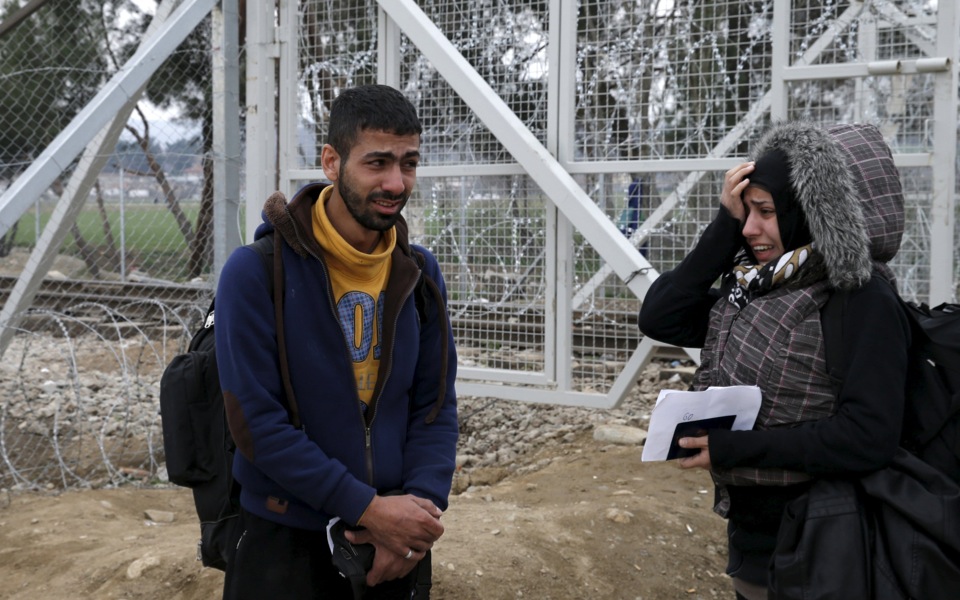
Anxiety gripping his features, the man from Syria hands over his birth certificate to Former Yugoslav Republic of Macedonian (FYROM) border police, hoping against hope that it will be enough to allow him to continue his journey to northern Europe.
A FYROM policeman, no older than 35, squints at the document for a couple of minutes, scanning it for signs of a possible forgery.
No specialised equipment is used. After a few moments, he waves the man through.
Shanaz, a mother of three from the war-torn Syrian city of Homs, is less fortunate.
Through UN refugee agency staff, she explains that her husband took the family passports with him when he crossed the border during the summer, and that she only has colour photocopies.
She is denied passage. The family breaks down in tears.
In the latest in a series of unilateral measures by European states to stem the migration flow, FYROM on Sunday introduced more stringent document checks for Syrians and Iraqis seeking to cross its territory en route to northern and western Europe.
Instead of accepting new travel documents issued to the migrants at registration centres on the Greek islands, Skopje authorities now demand that Syrians and Iraqis furnish passports to be eligible to pass.
"Since Saturday the rules of the game have changed. Macedonian police demand passports. Previously they were accepting documents provided by the Greek police. For many Syrians and Iraqis this is a big problem," said a UNHCR official at the scene.
On Sunday, FYROM also entirely closed its border to Afghans, stranding hundreds in Greece and further complicating the efforts of overstretched Greek authorities to manage the crisis.
Skopje's move follows decisions by countries further up the migrant route to turn back groups of Afghans, after reports that many were actually Iranians or Pakistanis.
"Everything we are doing is in coordination with the agreement from Zagreb," a senior government source in Skopje told AFP on Tuesday, referring to a February 18 meeting of police chiefs from Austria, Croatia, FYROM, Serbia and Slovenia that created a joint refugee registration point on the Greek-FYROM border.
"We are interviewing, profiling, identifying, doing registration… and all who fulfil the defined conditions are allowed to cross. The criteria have been imposed by those countries that are final destinations," the FYROM official said.
He added that Austrian, Serbian, Croatian, Hungarian, Czech and Slovakian police were helping to monitor the flow at the FYROM border.
With migrant and refugee arrivals in Europe surpassing 110,000 in the first two months of the year alone, the United Nations warned that border restrictions being imposed by some states could cause chaos.
The European Union also voiced concerns about the risk of a "humanitarian crisis", particularly in Greece, which lies on the frontline of Europe's greatest migration challenge since World War II.
FYROM's restrictions have seen the number of arrivals slow to hundreds a day, although thousands more continue to land daily on Greek islands.
Around 3,000 people were waiting at the Idomeni border crossing between Greece and FYROM on Wednesday, local police said.
Thousands of spurned Afghans heading back to Athens, and Syrians and Iraqis bound for the border, spent the night on buses or in motels alongside the main highway north.
"We have been forced to stop people on the national highway to avoid overburdening the situation at the border," a police official in Athens said.
A Greek migration ministry source said two recently-completed refugee relocation centres near Athens and Thessaloniki had been rushed into service to house some 3,000 new arrivals.
[AFP]
